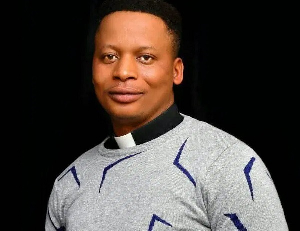Africans in the Diaspora has expressed anger, frustration and embarrassment at what they perceive to be irregular treatments they go through at the hands of “brothers and sisters” on the continent. “We are annoyed, and disgusted about the treatment you people take us through, “you do not want us here but we will not go away again this is our home land, and some of you are equally guilty as the white man who maltreated us and took our ancestors away into slavery.” These were sentiments expressed at a public lecture to herald the formal opening on Friday of the fifth Emancipation Day celebration in Africa in Accra attended by a large number of people including students, Pan-Africanists and Africans in the Diaspora.
The lecture under the theme, “Emancipation, What it means to us,” was marked with cultural performances, inspirational speeches and poetry renditions and a challenge for re-asserting the true African identity and dignity. The celebrations, which mark the abolition of Chattel slavery in British colonies in 1838 was characterised by emotional scenes as some of the Africans in the Diaspora recounted the horrifying experience their ancestor, went through. An Advocate of Jubilee Afrika Campaign, Ms Affiong Southey called for a strong bond between Africans on the continent and those in the Diaspora to ensure unity and progress of the black race.
“If the nations and peoples of Africa and of the Diaspora can come together with determination to build a strong economic base, our people can live in peace and dignity,” she said. Ms Southey, who was contributing at the public lecture recounted the atrocities of slavery and said the sacrifices made by Africans should spur them on to a greater sense of unity and well being. “Among us, we have many complementary resources, skills and talents. Divided, we can achieve only relatively modest gains. Together, we can create prosperity and address the causes of poverty, ignorance and strife.”
Ms Southey, who is a lawyer by profession also, criticised the Ministry of Tourism and Modernisation of the Capital City, the main organiser of the event for failing to include the voice of the Diaspora on the panel for the lectures. According to her no one can say and narrate their story better than they who went through and continue to experience the horrifying event. Ms Southey who recently condemned the distortion of African history to justify colonialism by European scholars even in the 21st century said Africans have reached a point where they need to rely on the potentials of one another to ensure their development.
“What we need is the commitment and the resolve, as willing collaborators of one family, to harness our collective skills and investments to provide a true and healthy meaning to our freedom. “We remember the past, not in bitterness and hatred, but in recognition of our duty to ensure that such injustice shall never happen again.“Shared pain and sorrow may unite us, but we have the will and the commitment to turn it into shared hope, pride and progress.” Ms Sounthey said the celebration, which is an attempt to forge closer links between Africans on the continent, and those in the Diaspora should not be turned into a talk shop.
“We need to teach our children that these castles are not just holiday resorts but places where pain and torture took place.” Speaking on the topic “Healing the wounds of the past,” The Reverend Fred Deegbe, Senior Evangelist of Calvary Baptist Church, called for mental emancipation of Africans from the shackles of slavery and the evils of colonialism. He said Africans must liberate their minds by thinking for themselves and refusing to accept the dictates of or imitate the cultures of people “who think they are superior to Africans.”
He said although slavery was abolished over a century ago, the black race is yet to be totally emancipated as their minds are still dominated by conditions set up by their slave masters. “Now the black race is at a cross-roads where they will have to decide which way they will have to take forward to regain their dignity and ensure their progress.” Dr Akosua Perbi, Department of History University of Ghana who spoke on “Aftermath of Abolition and Emancipation,” said “the slave trade was the greatest mass migration the world has ever known as the African continent suffered desolation, depopulation, insecurity and ravages of war but today we celebrate its survival.
“We celebrate the fact that although the continent sent its able-bodied men and women outside to work for others the continent did not die out...we celebrate the ability of the African to bear pain and to produce children to keep the continent alive.” Alhaji Boniface Abubakar Saddique, Deputy Minister for Tourism and Modernization of the Capital City who chaired, hinted that the government would soon establish a Commission in charge of Africans in the Diaspora. Other activities lined up for the programme include the official opening, of an international conference on emancipation, a slave route march, re-interment and funeral rites for enslaved ancestors.
Diaspora News of Sunday, 27 July 2003
Source: NH












